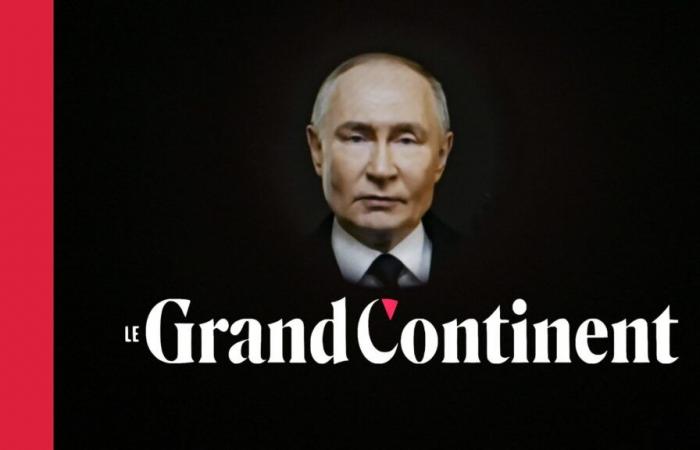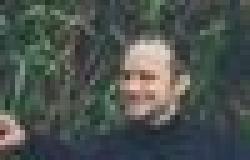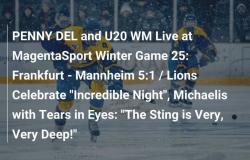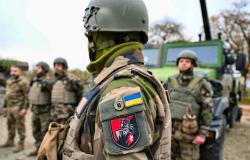After wishing his best wishes to a reduced list of heads of state and government – including Viktor Orbán, Pope Francis and Kim Jong-Un -, like every year, the President of the Russian Federation celebrated the New Year with a short television speech in front of an image of the illuminated Kremlin — he only modified this arrangement in 2022, this time posing as a warlord, surrounded by the staff of the Southern Military District. In tone and intentions, this New Year’s speech hardly differs from those he has delivered since the start of the invasion of Ukraine. In 2022, he declared that the year of the launch of the Ukrainian operation represented a pivotal stage, which laid the foundations for a common future and true independence from Russia; in 2023, it established the meaning of a “destiny of the Fatherland” as a key element of Russian national unity, at a time when each and every person must feel deep within themselves the extent of the country’s historical responsibilities.
This December 31, 2024, Vladimir Putin repeated these same “elements of language”, essentially emphasizing three points.
Without mentioning the “special military operation” or even Ukraine, his speech did not fail to pay tribute to the soldiers fighting at this very moment for “the defense of Russia” and the preservation of its sovereignty – he said Elsewhere, he took this opportunity to confirm that the year 2025 would be decreed – the latest avatar of Russian festomania – “Year of the Defender of the Fatherland”. Addressing the entire national community, Vladimir Putin insisted on the importance of patriotic feelings, the true binder of Russian society and the guarantee of its historical continuity. Finally, and not unrelated to the above, this television address, broadcast on around ten channels and watched by millions of Russians from home, celebrated the values of family, friendship, camaraderie and relationships. between generations. In a society where political life has been compressed for decades, the home is indeed the place on which the Russian government would like all life to refocus, to find individual comfort and fulfillment in the absence of any directed action. outwards.
It should be noted, however, that this year, the presidential speech was reduced to the strict minimum – approximately four minutes. This brevity can be explained simply: the essentials had been said during a previous intervention dated December 19, very widely broadcast and even more commented on, during which Vladimir Putin had answered a series of questions – carefully selected – journalists and citizens from across the country. In this context, burning issues were addressed more directly, starting with that of the Ukrainian incursion into the Kursk region. Vladimir Putin declared himself powerless to advance a time horizon for the expulsion of Ukrainian troops.
Despite everything, he recalled that the State had invested 108 billion rubles (a little less than a billion euros) in the relocation of residents affected by the conflict, while announcing projects to rebuild roads, schools and other infrastructure.
Another point, even more central, concerned the new Oreshnik missile, used for the first time last November. In essence, Vladimir Putin presented this device as a response to provocations from the United States: while Russia had expressly asked them not to deploy anti-missile systems in Europe, they have indeed installed their “Standard Missile 3” in Romania and Poland during the 2010s. During his speech, the Russian president presented the technical elements which make it impossible to intercept an Oreshnik missile, whose range (up to 5,500 kilometers) is largely superior to that of the SM-3, and whose bases are located too deep on Russian territory to be reached at launch – this is a response to the estimates of Western experts judging that the Oreshnik missile would be particularly vulnerable during this phase. Whatever the legitimacy of Russian assurance and the seriousness of Vladimir Putin’s threats, it is clear that the new year presents itself under the guise of a frantic arms race, at the very moment when the GUR ( Ukrainian General Intelligence Directorate announces that a Magura V5 naval drone modified to carry anti-aircraft missiles has, for the first time, shot down a Russian Mi-8 helicopter on the west coast of Crimea.
It doesn’t matter to the Russian president, and this for a very simple reason, expressed again on December 19 in a series of sentences which perhaps provide the key to his entire policy. In response to a question about Russia’s position in “a world about to go crazy,” Vladimir Putin responded as follows: “You know, when everything is calm, measured, stable, we get bored. We are stagnating. We are hungry for action. As soon as the action begins, everything flies around us, seconds like bullets. Unfortunately, the bullets are already whistling in our ears. So, we become afraid: ‘it’s horror’. Well yes, ‘it’s horror’. But still not ‘absolute horror’.
We see here how Vladimir Putin’s policy differs from that of Western heads of state today: between vitalist exaltation of the movement for the movement’s sake and the cult of horror, of fear, of the gripping feelings that push action and uplift the soul, it seems to go back to another century. In LTI The language of the Third Reichthe philologist Victor Klemperer noted something similar about the political language of the IIIe Reich: the language of a force which moves forward, sacrificing everything to the movement, admitting no enemy “invasion”, no “defeat”, but, at worst, “irruptions” or “rectifications of the front” , a force incapable of retreat or stagnation, because any retreat or stagnation would be death for it.
“We will move forward, without ever going backwards,” Vladimir Putin clearly affirmed on December 31, 2024. So the Russia he governs is moving forward and will continue to do so as long as that his adversaries will not bring themselves to oppose him with another force, the use of which would immediately mean that everything would no longer be so “calm, measured, stable” – particularly in Western Europe.
Dear fellow citizens, dear friends!
In just a few minutes the new year will begin, marking the end of the first quarter of the 21ste century.
Russia has experienced many large-scale events during this period, some of which are already of historic character. We set ambitious goals and achieved them, repeatedly overcoming the obstacles that faced us because we were together.
In doing so, our solidarity and our faith in ourselves, in our strengths and in our capabilities have been considerably strengthened. Of course, considerable tasks lie ahead, but we already have every reason to be proud of our accomplishments. This is our common heritage, the pillar of all future developments.
Our country is independent, free and strong. He knew how to respond to the most difficult challenges. Today, on the eve of a new year, all our thoughts are focused on the future, with the certainty that everything will work out for the best. We will move forward and never go back. We know perfectly well that the absolute value, for all of us, still remains and always will be the destiny of Russia and the well-being of its citizens. Sincere and deep feelings towards the Motherland fill our life with high meaning; all our efforts to defend its sovereignty, its security, its interests and its free development are for us a real issue of honor.
On this New Year’s Eve, the thoughts and hopes of families, loved ones, and millions of people across the entire Russian territory accompany our soldiers and their commanders. You are true heroes, you who today assume military duties, you who defend Russia and provide our people with solid guarantees of peace and security. We fill ourselves with pride at your courage and bravery; we have faith in you.
In your honor, in celebration of eighty years since the Great Victory and as a tribute to the memory of our ancestors who throughout Russian history fought for their Fatherland, the coming year was proclaimed “Year of the defender of the Fatherland. We are the children, grandchildren and great-grandchildren of the generation that triumphed over Nazism and we remain faithful to the principles and traditions of our veterans.
Dear friends,
We always welcome the New Year with warmth and enthusiasm. We hope that all our dreams, all our thoughts, all our noblest intentions will not fail to come true. There is only a little time left before the arrival of the new year. In these few moments, we are surrounded by the people closest to us: our family, our friends, our parents, our grandchildren, our comrades and brothers in arms.
I wish happiness and prosperity to every home, to each of our families and to our beloved country, Russia.
When we are united, anything is possible.
Happy New Year, dear friends, Happy New Year 2025!






